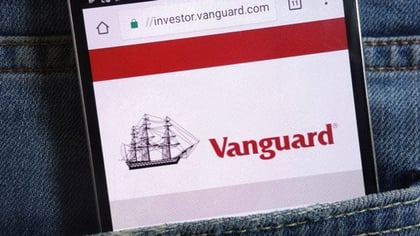Vanguard has closed its U.S. Value Fund to new investors as it seeks to merge the $1.1 billion fund into the better-performing and larger $77.2 billion Value Index Fund early next year.
The firm will be asking shareholders of the quant-based actively managed fund to approve the change via a proxy that it expects to distribute beginning in November ahead of its Jan. 22 virtual shareholder meeting.
Vanguard will also be sending proxies to shareholders of five other funds seeking approval to change their classification from diversified to non-diversified because of an increased concentration of holdings. They are the Vanguard Health Care Fund, Vanguard Energy Fund, Vanguard U.S. Growth Fund, Vanguard Variable Insurance Fund — Growth Portfolio, and Vanguard Variable Insurance Fund — Real Estate Index Portfolio.
Under the Investment Company Act of 1940, 75% of a diversified fund’s assets must limit the allocation of any one holding to no larger than 5% of a fund’s assets and no more than 10% of the outstanding voting shares of any one particular issuer.
“We encourage shareholders of the six funds to vote on these important proposals,” said Tim Buckley, Vanguard Chairman and CEO, in a statement. “We believe the proposed changes will enable Vanguard to manage these funds more efficiently and effectively, and continue to deliver strong outcomes for investors.”
U.S. Value Fund Closing
The closing of the U.S. Value Fund (VUVLX) doesn’t surprise Dan Wiener, editor of The Independent Adviser for Vanguard Investors, a monthly newsletter. “The quantitative fund simply couldn’t hold its own, and with the shiny new toy of U.S. Value Factor ETF trying another angle on “value” well, it was time for the old dog to go.”
The U.S. Value Fund, however, has outperformed its ETF counterpart year to date but has sharply underperformed the Vanguard Value Index (VVIAX) YTD and every year since 2015.
Following a change in process in 2016 the fund “has struggled in choppy markets more than it had prior to the change,” according to a late December Morningstar analyst report by Patricia Oey. As a result, Morningstar downgraded the fund’s analyst rating from silver to bronze. The fund has a two-star Morningstar rating.









 July 29, 2020 at 02:57 PM
July 29, 2020 at 02:57 PM











